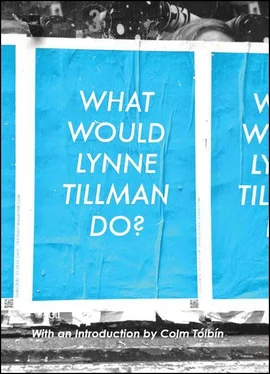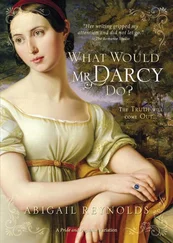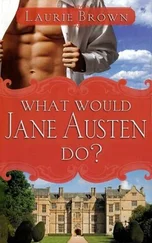*
There is a game in David Lodge’s novel Small World in which the highly educated characters vie with each other to name famous and canonical books that they have not bothered to read. (The winner, by the way, has not read Hamlet.) For anyone writing now, or indeed for many readers, there is a serious edge to this game. Increasingly, the canon, the accepted list of great and good books, seems like merchandise, something created to be consumed, carefully packaged for you and all your family. The canon seems concerned to hold on to power, the power of the middle ground. Other voices, other systems of seeing, are excluded with something close to deliberation; they are reduced to being marginal, eccentric. Slowly then what is out of fashion moves out of print.
For anyone serious about writing, it is often the book that has been forgotten or dismissed, the writer you found on your own, the story or poem or presence that has been too strange for others, that has mattered most, that has made you in its likeness. Creating space for your own work involves creating space for the work that made a difference to you. This is why artists write essays; they do so to reposition the way we read or the way we respond so that the work they do can be read or seen more clearly. It is the same reason, if there is a reason, plants grow toward light.
Lynne Tillman’s essays, and indeed the interviews she has given and conducted, are thus an essential part of her work. Her response to books is daring, sharp; she allows for mystery, beauty, strangeness, but she also allows for complexity, coolness, distance. She does not accept that there is a mystical relationship between the world and the book. In contemplating Warhol in “The Last Words Are Andy Warhol,” for example, Tillman writes: “Books are not mirrors, and life doesn’t go onto the page like life, but like writing.” Writing, for her, is like writing, if it is like anything, and it probably isn’t like anything; words, for her, come from words, they have their own shape and sound. When, in the same essay, she arrives at the phrase “in real time,” she knows to ask “whatever that is.” Naming for her is re-naming. There are words and concepts that do not connect for her. “Existence,” for example, is “a shaggy-dog story.” “Redemption,” she writes, “from my point of view, is an American disease.” And she adds, in her essay on Paula Fox’s Borrowed Finery: “Contemporary novels have become a repository for salvation; characters — and consequentially readers — are supposed to be saved at the end.”
Tillman is, as she quotes the photographer William Eggleston saying of his own work, “at war with the obvious.” Some allies matter to her in this war, and they include Jane and Paul Bowles, Charles Henri Ford, Jorge Luis Borges, Walter Benjamin, Paula Fox, Chet Baker, Etel Adnan, Harry Mathews, John Waters, Gertrude Stein, Edith Wharton.
While writing for her does not reflect life, whatever life is, this does not mean that, for her, fiction does not somehow come from the world and is not a strange and angled response in language to what is beyond its pages. She insists, for example, on the importance of the public realm and the place of literature within the public realm, indeed the connection between literary form itself and the shape of politics. “These days,” she writes in “Body Parts for Sale”:
the west gloats over the demise of communism, the premise being that democracy and capitalism are synonymous. The demise of totalitarianism from the left or right is something to be happy about, but I’m left wondering what capitalism offers, apart from a certain economic system, to the spirit that haunts our Gothic stories, and to a sense of how society should be run, to a sense of what common goals can be. Dog-eat-dog and survival of the fittest are appropriate metaphors for not just the capitalist ethic but also for the production of Gothic perambulations. In our country without adequate health care and housing, a country first decimated by Reagan’s criminal grotesqueries and Bush’s new world order, what more credible form is there?
Tillman allows her intelligence to range over many questions. In “Downtown’s Room in Hotel History” her analysis in one paragraph of the power and lure of downtown Manhattan for a generation of artists is definitive:
Downtown’s shows and parties, held inside a small perimeter, allowed for quick comings and goings. You never had to stay; you could usually walk home. This cosmopolitan life, rootless, maybe, sometimes unheimlich, uncanny, ordained that home wasn’t necessarily homey. The city grew fields of the unfamiliar and unexpected, which trumped the humdrum. The city’s virtues and Modernist values — such as strangers and strangeness — were the small town’s vices and fears.
Tillman has no time for the unexamined sentence, and, since the process of examination gives her prose an energy, the more she thinks the more she can make sparks fly. This, for example, is a paragraph about John Waters, from her essay “Guide for the Misbegotten”:
Though irony is mother’s milk to him, Waters’s quest for genuine communication inside bullshit-free zones propels him toward worlds with and without irony. Sincerely insincere, insincerely sincere, authentically inauthentic, inauthentically authentic, his work vexes the normative and all the usual binaries. Oppositional terms can’t tell the stories he wants to tell. The mash-up of in-betweenness sparks Waters’s imagination, where insincerity can be sincere, sincerity ironic. Waters prodigiously exaggerates the deficiencies of false dichotomies; each side of the aisle is desperately wanting. All this ongoing worry about “authenticity” in art and life, his oeuvre suggests, is moot, since human beings may be incapable of inauthenticity. Con artist Bernie Madoff’s commission of fraud doesn’t make Madoff a fraud: he’s absolutely Madoff.
Tillman is also funny. “At parties I observe people acting much like dogs,” she writes in her essay “Blame It on Andy,” “except for sniffing rear ends, which is generally done in private.” In her review of a history of shit, she remarks that the author’s “tongue is often in his cheek.” Sometimes, the wit is unsettling. When she writes, for example, in “Doing Laps Without a Pool,” that “fish probably don’t know they’re in water” and then adds, “(who can be certain though),” I, as the reader, become uncertain. I think about fish, and the sheer tragedy — or maybe sadness is a better word, or maybe even comedy — of their not perhaps knowing something so obvious, so — how can we put it? — clear-cut, staring you in the face. And then I think about certainty. I stand up and move around the room, opening and shutting my mouth like a fish, wondering if I really know where I am, forgetting about fish for the moment. Then I go back and look at the last two sentences Tillman has written in that paragraph about fish to see if there is any comfort there. “Complacency is writing’s most determined enemy,” she writes, “and we writers, and readers, have been handed an ambivalent gift: doubt. It robs us of assurance, while it raises possibility.” That last sentence is very beautiful, but you would have to be not a fish to appreciate it. Or at least I think so. I wonder what Joni Mitchell would think.
*
Lynne Tillman’s essay on Edith Wharton’s The House of Mirth is the finest essay that anyone has written on that book. This essay, “A Mole in the House of the Modern,” is also a key to elements in Tillman’s own work and indeed to her sensibility as an artist. Lily Bart in The House of Mirth, in Tillman’s telling, wants something from life that life cannot give her, and it is that desire, “her magnificent desire to be herself,” in all its complexity and seriousness and richness, which destroys her for the world but re-creates her for the reader. Slowly, as her power diminishes, another force in Lily, the force released by her imagination, becomes dominant, as voice in a novel becomes dominant over character, as tone and texture over plot.
Читать дальше












